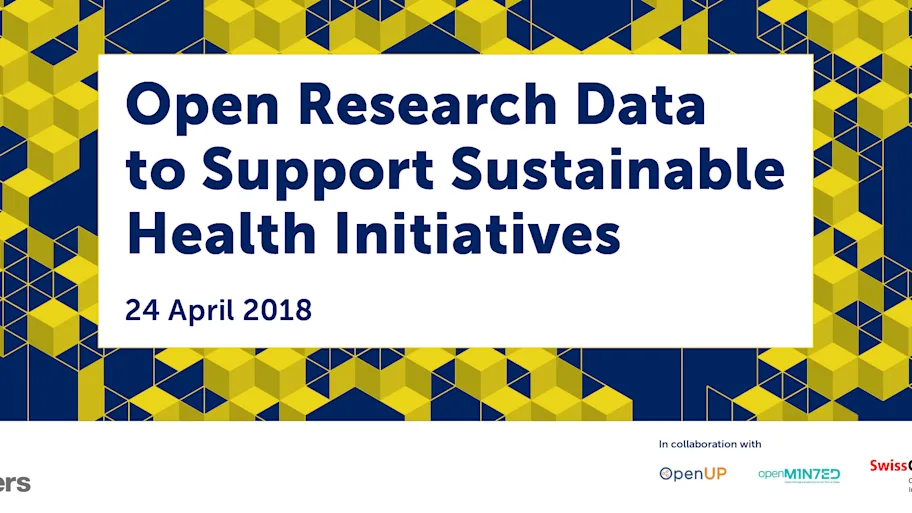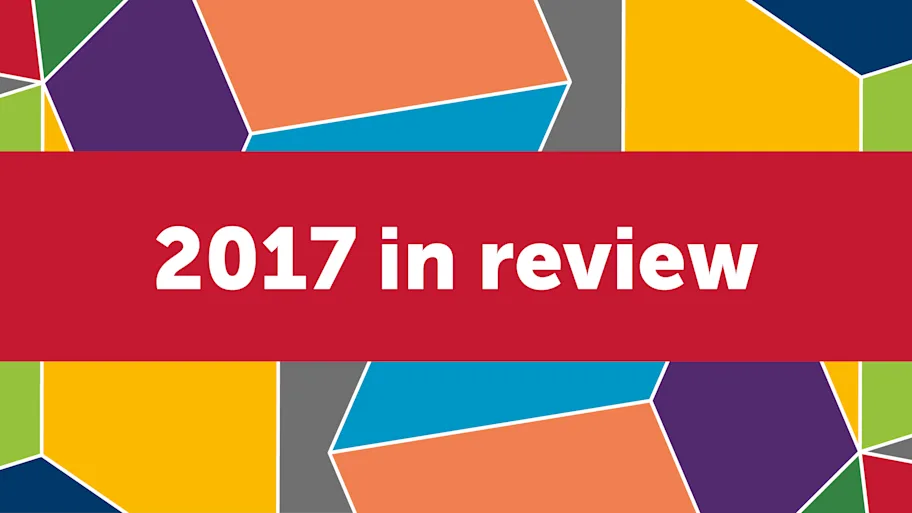
- Science news
- Frontiers news
- Applying open research data to sustainable health initiatives
Applying open research data to sustainable health initiatives

130 academic, advocacy and policy experts discussed how Europe can unleash the full benefits of open research data in health, at the Frontiers Data Services Workshop 2018 held in Brussels, Belgium, on April 24.
Frontiers’ second annual Data Sciences Workshop — organized in collaboration with the Horizon 2020 projects OpenMinTed and OpenUp, in which Frontiers is a full partner, and SwissCore, the Swiss contact office for European research, innovation and education in Brussels — focused on the application of open research data to support sustainable health initiatives in the field of health.
It aimed to draw lessons from recent successes in the use of big data and artificial intelligence in data-intensive health research, and to discuss policy challenges and actions necessary in Europe to unleash the full potential of open research data in health for the benefit of society.
Breakthroughs in data-intensive health research
In the first session, three leading academics described cutting edge, data-driven research approaches. Prof. Paolo Vineis (Imperial College London; Field Chief Editor, Frontiers in Public Health) discussed the integration of omic technologies into public health, while Dr Michael Rebhan (Novartis Institutes for Biomedical Research, Basel) described the use of text and data mining in health states modelling.
In both of these areas, the application of new analytical techniques to large datasets are essential to help unravel complex interdependencies and non-linear causal relationships between health determinants.
We need agility, co-creation and open science.
Michael Rebhan, Senior Investigator, Novartis Institutes for Biomedical Research
A key theme touched on throughout the day was the potential for open data sharing to accelerate research toward societal benefit. Dr. Lee Wen Hwa (Structural Genomics Consortium (SGC), Oxford) explained how the SGC model epitomizes how collaborative, open access/open source drug development can help drive candidate treatments for rare diseases into clinical research more quickly than conventional pipelines.
Cutting-edge technologies and services
The challenges in implementing open data practices are well recognized and — in the words of one participant from the European Commission — what we need are solutions.
In Session 2, solution providers — including Frontiers — explored how technologies such as AI-enabled knowledge graphs, knowledge bases, agile loops and data aggregation are now being used to support digital publishing, data management and discoverability, and text and data mining (for example in health states mapping).
Importantly, around 90% of content is currently closed to text and data mining. Ensuring that as much data as possible is available open access according to Findable, Accessible, Interoperable, and Reusable (FAIR) principles is therefore essential to maximize the benefit from these approaches. It was also made clear that a long-term international funding plan is essential to ensure the sustainability of core data resources.
Overcoming EU policy, institutional and regulatory challenges
How should policy support the transition to Open Science? In the final session, panelists representing research funders, academic libraries, universities, patient advocacy and the European Commission discussed the policies necessary to promote and leverage open, big data research in health.
At the EU level, Dr Cornelius Schmaltz (EC DG RTD) overviewed the Commission’s various policies and actions to promote open data sharing.
Open Data prevents duplication of efforts, gains time for patients, and enhances verification of research results.
Cornelius Schmaltz, Head of Unit for Strategy, European Commission
For example, the Open Research Data Pilot is now the default option for health research projects funded under Horizon 2020. Dr. Schmaltz reported that, of 49 Horizon 2020 grant agreements signed in January 2018, only three projects opted out of this pilot — indicating that scientists generally understand that the Open Research Data Pilot does not threaten intellectual property or personal data protection.
Dr. Schmaltz also outlined recent early steps plans for a Health Research and Innovation Cloud, part of the European Open Science Cloud. This is intended as a digital platform to enable data sharing and analysis specifically in health research across the EU. This reflects the need for the implementation of the EOSC to take into account health sector-specific needs, notably regarding data protection and privacy in processes compliant with the General Data Protection Regulation (GDPR).
Complementing this presentation, Saila Rinne updated participants on the work of the DG CONNECT in fostering the data ecosystem and economy of the Digital Single Market. She drew attention to the package of data proposals published by the Commission (on 25 April) that build on the GDPR to boost scientific data sharing and reuse, and patients’ access to health data. Ms. Rinne also highlighted initiatives such as MyHealthMyData — a Horizon 2020 research and innovation action that aims to fundamentally change the way sensitive data are shared, using blockchain and other innovative systems.
Stephan Kuster explained that Science Europe, the organization representing European Research Funding Organizations and Research Performing Organizations, sees Open Science as a means to achieve the goal of high-quality reproducible health science research. Open Science practices must be research-led, he argued, and so Science Europe is working with different communities to develop domain-specific data management protocols.
We have to care about the quality of science, because citizens care about the quality of the healthcare they receive.
Stephan Kuster, Secretary General, Science Europe
Funders and policymakers also have important roles in providing incentives, recognition, guidance and best practice. These policies should be aligned between funders to reduce the burden on researchers and to foster collaboration and data-sharing. To this end, Science Europe has developed a series of core requirements for aligned data management plans and trusted repositories.
Dr. Eva Mendes (member of the EC Open Science Policy Platform) took up the theme of research incentives. As she put, “The choice facing researchers should not be, do you want to be tenured, or do you want to be an Open Scientists? Instead, if you want to be a tenured, you must be an Open Scientist! Excellent science should be Open Science.”
Dr. Mendes also represents YERUN, an organization regrouping Young European Research Universities (YERUN), born digital and hence naturally proactive in open science and FAIR open data.
Jeannette Frey (Association of European Research Libraries; LIBER) outlined how open access to FAIR data and the development of digital skills and research infrastructures are central elements of LIBER’s 2018–2022 vision and strategy for the research landscape. LIBER’s Working Groups on Research Data Management, Text and Data Mining, and Linked Open Data are currently working on guidance in these strategic directions and engaging with other partners. She also stressed the importance of new metadata standards for research data to ensure discoverability.
Research libraries aim to empower sustainable knowledge in the digital age.
Jeannette Frey, Director BCU Lausanne, Vice-President LIBER
Tamás Bereczky (European Patients Academy; EUPATI) stressed that research data and results — both positive and negative — must be communicated to patient communities. The predominance of the English language in research publishing is a barrier to this, and participants reflected on the challenges of comprehensive multi-language dissemination of results.
Beyond this aspect, Mr. Bereczky stressed the valuable contribution that patient communities can make to health research. Patient organizations have large amounts of knowledge and experience that they are eager to use to add value to research. EUPATI provides a rigorous open access educational course to foster scientific expertise among patients, empowering them to consult in research.
For example in the HARMONY initiative (part of the Big data for Better outcomes project of the Innovative Medicines Initiative (IMI)), patients participate as equal partners with clinical experts and other stakeholders in helping to evaluate research projects and develop outcomes definitions in the field of blood cancers.
Concluding the day, Dr. Fred Fenter (Frontiers Executive Editor) thanked participants and invited everyone to do a gap analysis to help motivate the development of new strategies to overcome the obstacles to the full implementation of Open Science.
Download all slides presented at the meeting here and the workshop agenda here.






